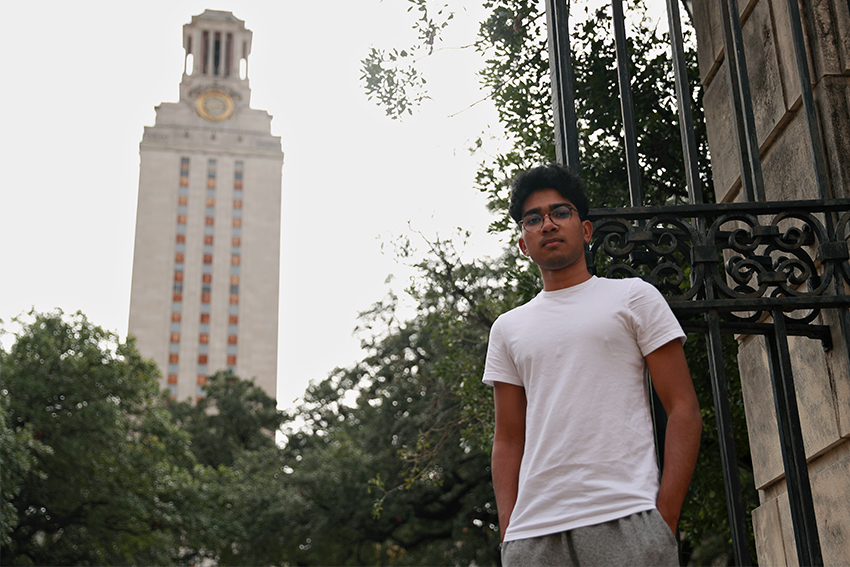Radio-television-film freshman Juneid Mosaheb first stepped foot in the U.S. in January and moved to Austin in August. Leaving behind his home in Mauritius to find a community at UT was one struggle — finding himself was another.
“The amount of people (here) really puts you in your place,” Mosaheb said of the transition to Austin from Mauritius, a small island next to Madagascar. “You’re not the funniest or smartest like on the small island — (I’m) not saying I was those things, but I felt better about them.”
Mosaheb said he was excited to pursue a higher education at UT and gain more independence, but the experience accompanied a sense of nervousness about finding his place on the Forty Acres.
“You have to push yourself a lot to just be out there,” Mosaheb said. “I’ve always had problems making friends in the beginning. A new school would have been hard enough, but I went to a new country.”
Mosaheb isn’t alone. According to 2017-2018 Impact Report statistics provided by the International Office, international students represent 10.2 percent of all UT enrollment. While attending school in the U.S. can present opportunities for international students, moving to another state or country can pose difficulties and require adjustments.
Mosaheb said he didn’t realize how drastic these adjustments were until he arrived on campus. He attended an international school in Mauritius where he and his friends would meet new people rotating into their school from other countries. Mosaheb said he recognized the adjustments they were making but could never empathize with them until now.
“(I) could understand how it was hard for some other people when they were coming into our school,” Mosaheb said. “Being in their shoes this time was hard, but it was worth it.”
Tatiana Woldman, the assistant director at the International Student and Scholar Services, said that upon arrival to the University, many students experience a “rollercoaster adjustment cycle.”
“When students initially arrive, they’re in a ‘honeymoon’ period,” Woldman said. “(They’re thinking) everything looks just like on TV. Everything is new, exciting and exhilarating.”
Woldman said that students then hit a “culture shock” phase where things that used to be thrilling and new become less exciting and dull. She said this is the time when students should be getting support and forming networks on campus.
Though journalism freshman César Perez was born in the U.S. and has visited regularly since, he still views himself as an international student, because he has lived in Ecuador his whole life and considers it his home.
Perez said that he was able to comprehensively prepare for the U.S. college campus by taking a program at Georgetown University called English as a Foreign Language, in which he learned English in an academic setting.
“In my experience, I would say that I was very fortunate on being able to prepare for the US college experience in a very thorough way,” Perez said.
Woldman said international students should be compassionate to themselves while in a new country.
“It is really hard to figure out how to operate in a new place,” Woldman said. “Allow yourself to make mistakes or get something wrong or ask a stupid question. Truly embrace the fact that you’re not from here.”




















